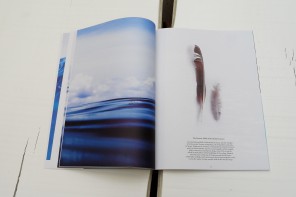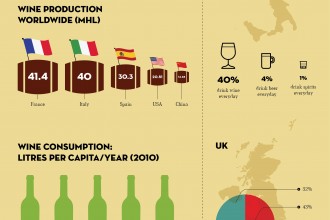Italy is labelled as a country unfit for businesses development because of many factors, ranging from the role of organised crime to the fiscal regime and bureaucratic apparatus.
However, two Italian companies, D1 MILANO and Wanderio, drawing their strength from the Italian design, flair and genius, are showing that innovation in business is still alive in the Belpaese.
D1 Milano-watches, fashion and lifestyle
D1 Milano was born in September 2012 at Bocconi University Business School in Milan, from four friends and entrepreneurs that shared a passion for watches and the watch-making industry.
Dario Spallone, CEO of D1 MILANO says: ‘We had this common idea of re-interpreting in a fashion perspective the iconic models of watches and to distribute them through a niche distribution channel, the high fashion one. Our price strategy was to create an affordable but luxurious product’.
Spallone describes the pivotal role of the business incubator Speed MI Up (partnered by Milan Chamber of Commerce, the Municipality of Milan and Bocconi University) in the company’s development.
‘It was through Speed MI Up that the real adventure started, because we had the possibility to encounter mentors, strategists and a solid team, that allowed us to work on our organisational structure and vision of the business model’.
D1’s CEO explains the exclusivity of the company compared to their competitors: ‘We put particular emphasis on all the aspects of the purchase of a consumer from the point of sales, from our e-commerce website to direct sales points’.
The emphasis is kept also when the clients open the product, thanks to the packaging, the membership card that also grants access to exclusive events and further elements.
‘It is a synergy of elements that create the ultimate experience’.
For what concerns the company future growth, Spallone concludes: ‘We want to expand this concept of affordable luxury internationally and we have started such expansion on September 2014′.
While a sizeable part of D1 MILANO sales is focused on the European Market, the United Arab Emirates represent another scenario of expansion for the company.
Wanderio, the best way to reach every destination
Wanderio’s activity started in 2012, when its CEO Matteo Colò and the co-founders Luca Rossi and Disheng Qiu met at InnovAction Lab in Rome.
InnovAction Lab is an Italian professional gathering for young entrepreneurs and during this experience, Wanderio’s founders had the chance to learn how to develop a business plan able to attract potential investors’ interest.
Colò says: ‘Wanderio’s strategy allows its users to book the best travel combination to reach a specified destination, by providing all the necessary elements within a single instrument’.
As Wanderio’s CEO explains: ‘In the beginning, the first version of our app featured a booking experience that was still fragmented, and so we have moved from a meta-search model towards a travel agency one’.
At the current stage, Wanderio users can book online a complete travel solution, including flights, bus, trains and ferries tickets in a single passage, by simply using their credit card and without the need of accessing different transport companies’ websites.
Wanderio’s outlook remains strongly focused on the European market, given the fact that the ‘multi-modal’ travel choice, mixing different kinds of transportation, is increasingly growing among travellers in the Continent.
Wanderio and D1 MILANO are just two of the more than 4,000 innovative start-up companies in Italy as Arcangelo Rociola, journalist, Supervising Editor of RnDLab and coordinator of Start Up Italia explains.
But what is the current state of the Italian start up ecosystem and what are its possible future evolutions?
Arcangelo Rociola analyses the role of a major barrier to start up development in Italy, besides the fiscal and bureaucratic ones: the lack of venture capital.
‘There are venture capital groups in Italy, like United Venture and Italian Business for Growth, but that it’s not enough. The launch of Invitalia is yet not enough’.
The Invitalia fund will inject liquidity in the Italian start up for the value of $543,346mn (£349,163mn).
Start Up Europe 2015’s report on investment in start-ups in the years 2010-2015 in five EU countries (UK, France, Germany, Spain and Italy) shows this element quite clearly: the UK leads the ranking with investments for $11bn (£ 7.042bn), while Italy stands at the last place with investments for $0,4bn (£ 0,2563bn).
Another recent example of this issue is represented by the recent purchase of VisLAB, a Parma based start-up that produces robot cars by the US company Ambarella for $32,6531m (£ 20,9406m).
‘Neither the main Italian car manufacturers of FIAT nor the leader hi-tech company Finmeccanica showed any interest in investing in a similar innovative company’, Rociola notes.
Given the context, what are then the perspectives for the Italian start up ecosystem?
‘There’s hope for the future of Italian start-ups if policymakers and the economic model accept the economic structure’s change and if a serious digital market, well connected to the European, the US and Asian ones, is developed’.
For what concerns the role of policymakers, Rociola considers the political phase started in 2011 with Mario Monti’s government as an improvement for innovative business’ development in the Belpaese.
Before the implementation of law 221 promoted by Mario Monti’s government Minister for Economic Development, Corrado Passera back in 2012, Italy lacked regulation for start-ups.
As Rociola concludes, the Italian innovative business challenge has to be faced: ‘It is mandatory to follow this path, as we have a high level of human capital in Italy, otherwise many will leave to develop their businesses’.






